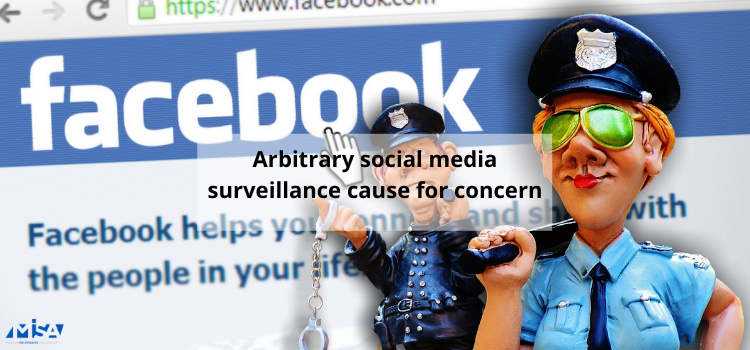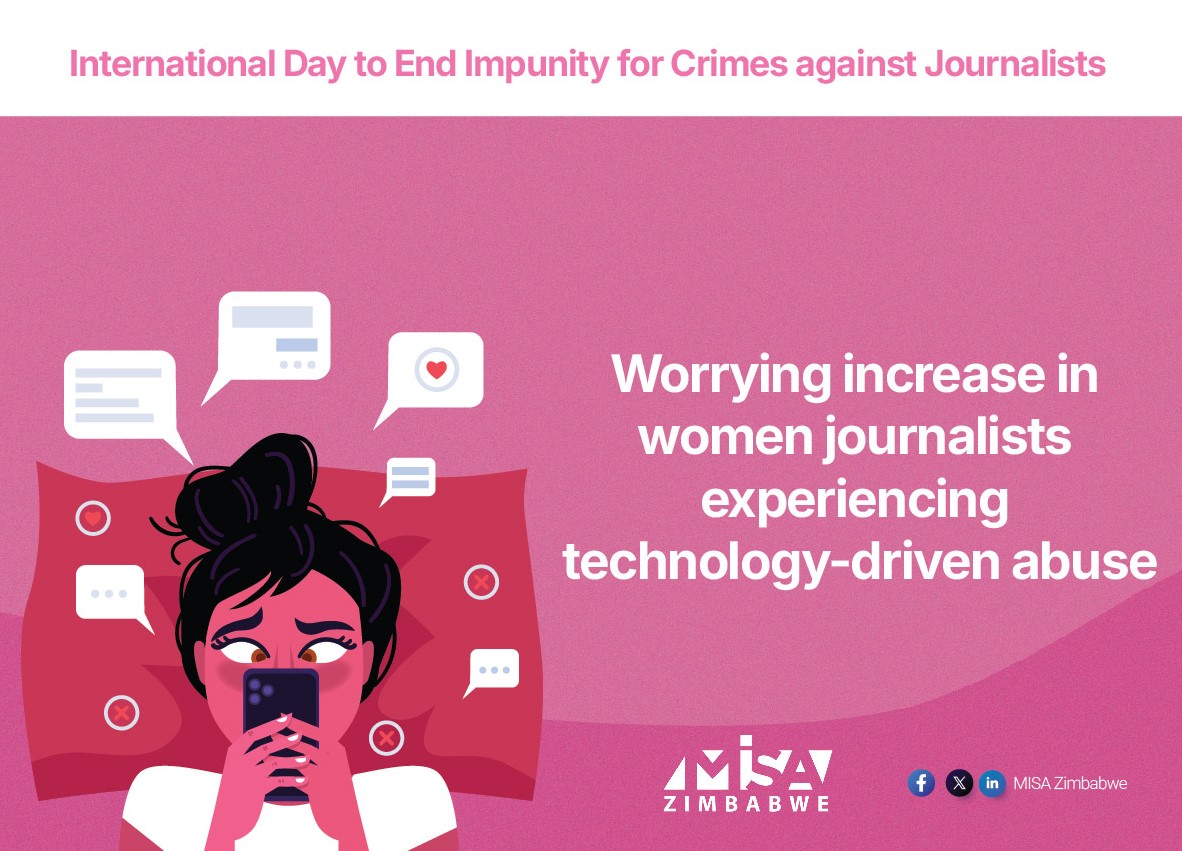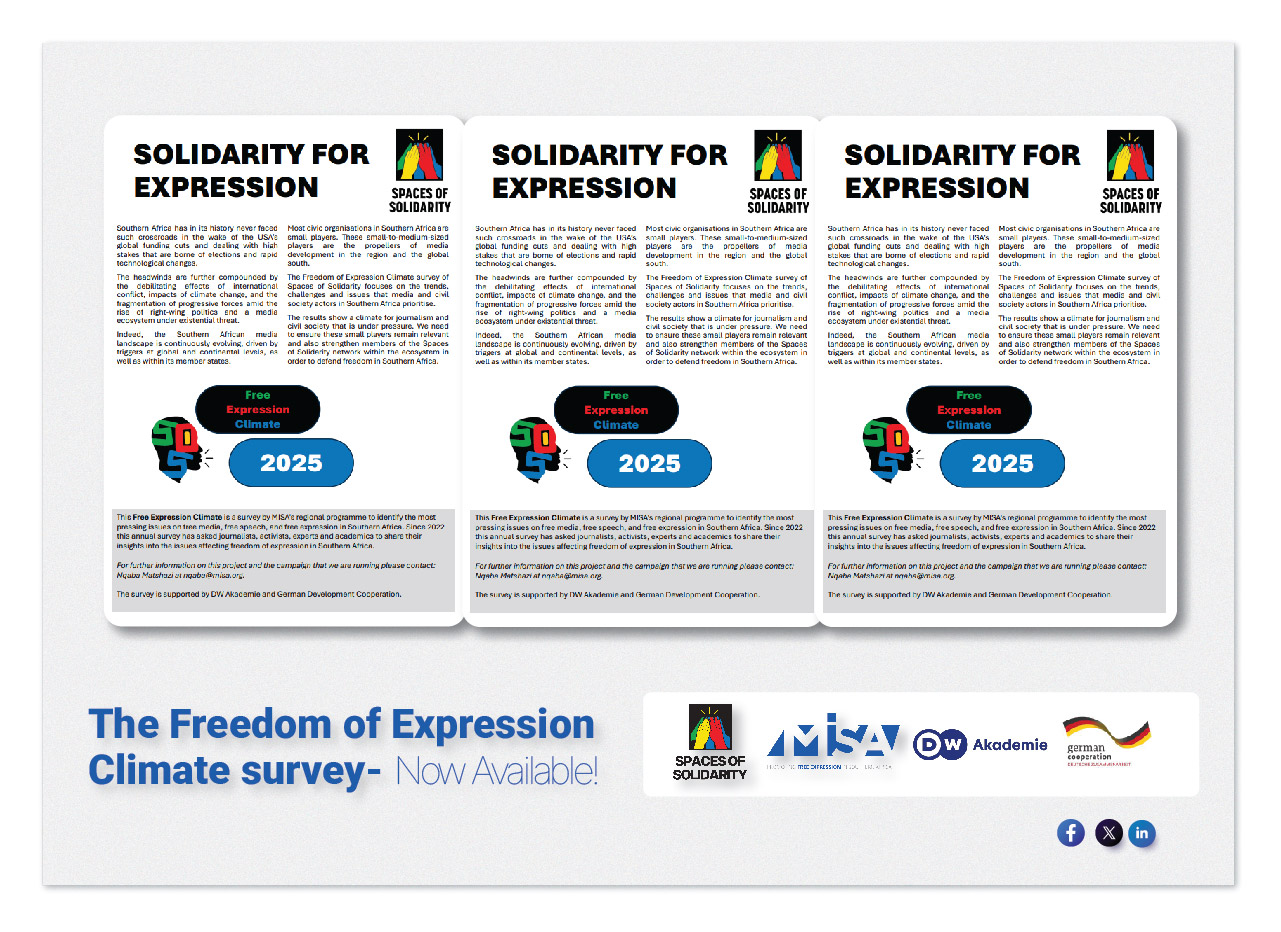Information, Publicity and Broadcasting Services Minister Monica Mutsvangwa has reportedly said the government has set up social media monitoring teams to monitor what people send and receive on social media.
According to a story published by NewsDay Zimbabwe in its edition of 4 November 2021, Minister Mutsvangwa reportedly said the government had set up a “cyber-team that is constantly on social media to monitor what people send and receive”.
“People used to have fear and respect on social media during (former President Robert) Mugabe’s time, but all that is no longer there in the second republic,” she reportedly said.
The minister is said to have, however, stated that the government did not intend to regulate social media.
However, this is still of great concern as this points to the government seeking to censor or instil a culture of self-censorship online.
Minister Mutsvangwa’s remarks have a chilling effect on free expression online. The very idea that citizens are being monitored will lead to fear and self-censorship and could mark the beginning of a clampdown on social media users and activists.
This is an anathema to democracy, where citizens should be free to express themselves both online and offline.
This should also be viewed in the context of the SADC Heads of State and Government Summit in Maputo in 2020. During the Summit regional governments resolved to take “pre-emptive measures against social media abuse”.
The news article did not go into details on how this surveillance would be carried out.
However, this raises questions on transparency and data accountability regarding data protection and privacy. The government needs to explain what tools or methods it will use to monitor social media and what purpose this monitoring is supposed to serve.
For the purposes of transparency and accountability, the authorities need to inform the nation on who comprises the cyber team and where it is housed.
Further, the government should explain the legal and constitutional provisions that give effect to such a cyber team and its functions. Mass surveillance of citizens is a grave infringement of the right to privacy, more so, when it is unjustified and unlawful.
Social media monitoring is very invasive as millions of Zimbabweans, both within and outside the country, use these digital platforms to communicate, to connect with friends and associates, and also to express their political, social, and religious beliefs.
MISA Zimbabwe is concerned that the government could increasingly be gravitating towards mass surveillance. Indiscriminate mass surveillance is not justifiable in an open and democratic society.
In Zimbabwe, several indications and attempts at mass surveillance have been noted.
In March 2020, the now late army commander, Lieutenant-General Edzai Chimonyo, said the army would start snooping into private communications between citizens to “guard against subversion”, claiming that the use of social media posed a threat to national security.
In September 2020, the ruling, Zanu PF, also highlighted that it would be deploying activists on social media to counter online narratives that are not favourable to it.
In October 2020, President Emmerson Mnangagwa addressed Zanu PF members at the party’s headquarters in Harare, where he said through the use of ICTs, the government had the capacity and had been able to track the locations of certain individuals and their communication details.
Meanwhile, Zimbabwe was also reported to be a customer of Circles, a surveillance firm that reportedly exploits weaknesses in the global mobile phone system to snoop on calls, texts, and the location of phones around the globe.
Zimbabwe was also reported to be one of the seven countries in Africa using Israeli cyberespionage tools.
Meanwhile, there is a chance that this cyber team could be using automated technology to undertake the monitoring.
This, therefore, means there is real-time aggregation, organisation, and analysis of large amounts of metadata and content.
Such levels of data collection, processing, transmission and storage should not be allowed to be undertaken in the absence of a data protection framework and more so an enabling law that authorises such monitoring.
In that regard, MISA Zimbabwe once again calls for transparency and accountability in the acquisition and deployment of surveillance tools. Any form of surveillance in Zimbabwe should be for a legitimate purpose and proportionate to the objective it serves.
Engaging in random mass surveillance is an infringement on the right to privacy of communications and the freedom of expression of Zimbabwean citizens.
If, for instance, this surveillance is for purposes of law enforcement, then there should be specific perpetrators that will be monitored instead of surveilling millions of users.
The government, through law enforcement authorities, should have reasonable suspicion that an offence is going to be committed or that an offence has been committed.
Government intrusion in public spaces such as social media platforms, promotes self-censorship, undermines the due process, and above all, infringes on fundamental rights, and should thus not be tolerated.
It is critical to recognise that the right to privacy is an enabling right.
Where the right to privacy is guaranteed, citizens feel more at ease to exercise other rights, such as freedom of expression, access to information, right to health care, freedom of association and assembly, among others.
Principle 41 of the Declaration of Principles on Freedom of Expression and Access to Information in Africa, provides as follows:
- States shall not engage in or condone acts of indiscriminate and untargeted collection, storage, analysis or sharing of a person’s communications.
- States shall only engage in targeted communication surveillance that is authorised by law, that conforms to international human rights law and standards, and that is premised on specific and reasonable suspicion that a serious crime has been or is being carried out or for any other legitimate aim.
- States shall ensure that any law authorising targeted communication surveillance provides adequate safeguards for the right to privacy, including:
- the prior authorisation of an independent and impartial judicial authority;
- due process safeguards;
- specific limitation on the time, manner, place and scope of the surveillance;
- notification of the decision authorising surveillance within a reasonable time of the conclusion of such surveillance;
- proactive transparency on the nature and scope of its use; and
- effective monitoring and regular review by an independent oversight mechanism.
MISA Zimbabwe, therefore, reiterates its earlier calls for the government to adhere to international standards and practices pertaining to issues of data protection and privacy.













